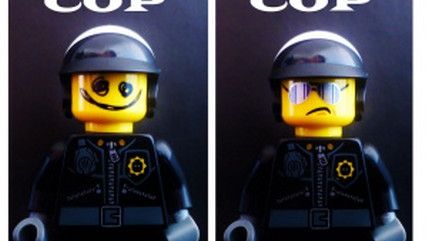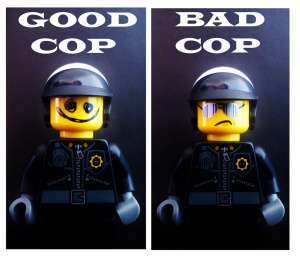Police Should Be Able to Accept Constructive Criticism
"Courageous conversations" among fellow officers could increase safety and decrease confrontation.

Did last month's mistrial of an officer charged in connection with the death of Freddie Gray, the Baltimore man who died of a severed spine while in police custody, reveal a paradox that limits the potential of achieving serious police reform through the legal process?

An article published last week in The Atlantic, titled "Why Police Need Constructive Criticism," points out that the prosecution's focus was on the department's own policies, while the defense stressed that the dangers faced by police on a daily basis cause officers to regularly (and they argued, reasonably) throw out the rulebook as a matter of survival. The article's authors (a professor of law, a professor of criminology, and a police consultant) suggest that the disparity between these two arguments highlights the "necessity for departments and officers to self-critique their practices," but that such critiques tend to be met with indifference or outright hostility:
In many departments, officers have developed a pathological aversion to "second-guessing." There is a pervasive belief that scrutinizing officer's use-of-force decisions will lead officers to hesitate, exposing them to dangers that swift action might have averted. The result is a reluctance to engage in an in-depth, critical review of incidents in which an officer injures or kills a civilian and resentment when an outsider calls for such a review. That's a problem. When an incident ends badly, it should be critically dissected to identify what contributed to that result, as is done when an officer is seriously injured or killed. The primary purpose is not to blame an officer, although poor judgment and failures to follow policy and training must be addressed, but to learn how best to avoid a similar situation in the future.
Later, the authors argue that the roots of police considering themselves immune from constructive criticism stem from the War on Drugs and the subsequent militarization of police, which led to a "warrior culture" and an "aggressive, adversarial approach to policing."
To counter what one former police chief called "officer-created jeopardy," they suggest "courageous conversations," where law enforcement colleagues could engage in unofficial "peer correction." For example, "telling a fellow officer that they created a needless confrontation with a suspect by using an inappropriately hostile tone or that they put themselves into an avoidable use-of-force situation with unnecessarily aggressive tactics."
My colleague Ed Krayewski has written extensively about the efforts of police unions to halt any meaningful reforms, as well as their insistence that there is an ongoing "War on Cops," despite the empirical data that proves otherwise. Krayewski's piece on the "5 Cities Where Police Reform Efforts Will Play Out in 2016" naturally includes Baltimore, and is well worth reading in full.


Show Comments (65)